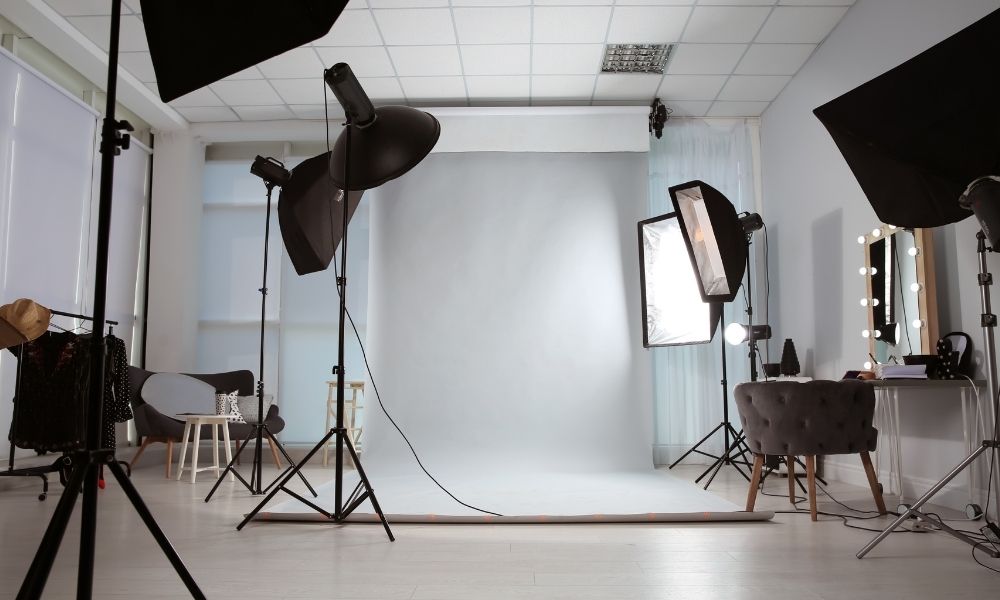
Buying studio lights might sound simple, but there are key factors you have to consider during your search. To avoid making costly mistakes while shopping for gear, familiarize yourself with the key questions to ask when purchasing studio lighting equipment. Asking yourself these questions and speaking with your equipment vendor about them can prevent you from investing in the wrong tech.
Is this the right light for the task at hand?
When you’re purchasing studio lights, the ones needed for photography typically differ from those needed for video shoots. For instance, strobes are prominent in studios, but they’re only the right choice for photography, not videos. “Constant” or “continuous” lights should be your go-to light choice for video shoots. The three basic types of continuous lights include fluorescent, tungsten, and LED bulbs.
How many bulbs do I need?
Some shoots call for one light, while others may call for four. The number of bulbs you should buy depends on the look and atmosphere you’re trying to create in the frame. A single key light is popular for creating a dramatic image, vibrantly highlighting the subject while everything else behind them falls into darkness. However, the more lights you have, the more dimension you can create in-frame.
Three-point lighting, which requires three light sources, is the standard for shooting videos. A good three-point set up will help you light your subject and the background, resulting in images that display visual depth without being too gaudy. Creating the right mood requires more than an artistic vision—it also calls for the right tech.
How reliable is the brand?
Making visually engaging, professional-looking videos requires you to seek out high-quality gear from reliable brands. Whenever you’re looking for gear such as bulbs, consoles, and stands, ask yourself if it’s from a brand worth investing in. Buying low-quality equipment from unreliable brands to cut costs will cut down the quality of your production too.
Luckily, there are various brands in the industry that consistently deliver great gear. For example, Ikan has a library of TV studio lighting equipment that can make your video content stand out to audiences or clients in a significant way. This is one of the single most important questions to ask when purchasing studio lighting equipment because your video content’s quality will reflect your gear’s quality.
